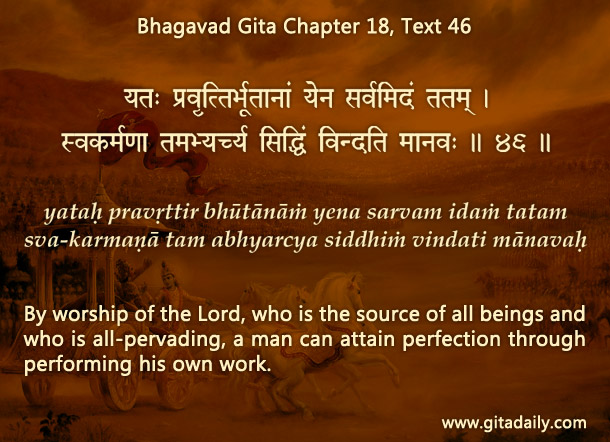Suppose someone has a precious inheritance buried in their backyard, and they want to give a valuable gift to their loved one. Naturally, they would locate and excavate that inheritance.
We can apply this principle to our devotional relationship with Krishna. When we practice bhakti, we are meant to offer our best to him. But if our understanding of spirituality is superficial, we may dismiss our body as mundane and temporary. By such dismissal, we fail to explore how we can best serve Krishna with the gifts we have been given through that body. Thus, we unwittingly become like a person too apathetic to locate and excavate the treasure in their own backyard.
Through our body-mind mechanism, we all have been gifted various talents and interests, some of which we know and many of which we don’t know. For discovering our unknown talents and interests, we need to introspect, using the appropriate tools for self-observation and self-exploration. We needn’t dismiss such tools as mundane or ego-centric, for they can be used in a devotional mood.
More importantly, Krishna himself wants us to worship him through the work natural to us (Bhagavad-gita 18.46). To understand what work is natural for us, we need to discover our psychophysical nature, which is reflected in our talents and interests. Of course, we can work in other areas too – and we may need to work therein because of circumstances. But we can work most effectively in those areas that we are naturally gifted in. By knowing those areas, we can at the very least take the opportunities when they appear, and can even endeavor ourselves to create those opportunities.
When we thus strive to discover our best, our ensuing devotional offering can both grant us sublime spiritual satisfaction and maximize our service’s practical contribution.
To know more about this verse, please click on the image
Explanation of article:
Podcast:


Leave A Comment